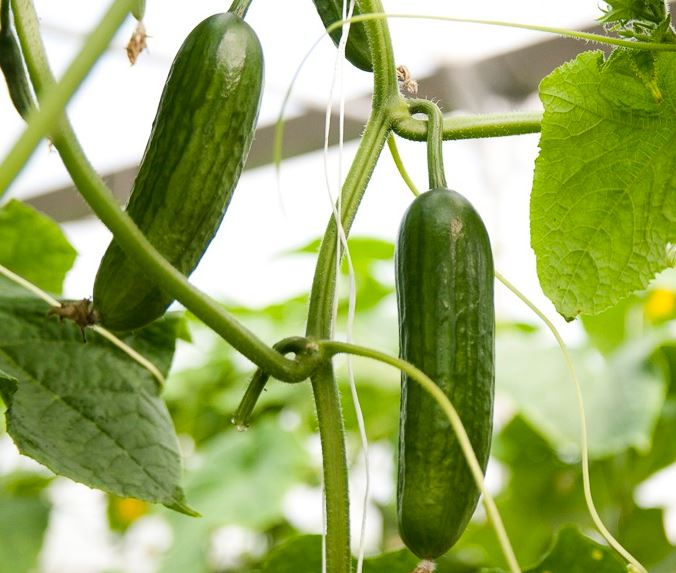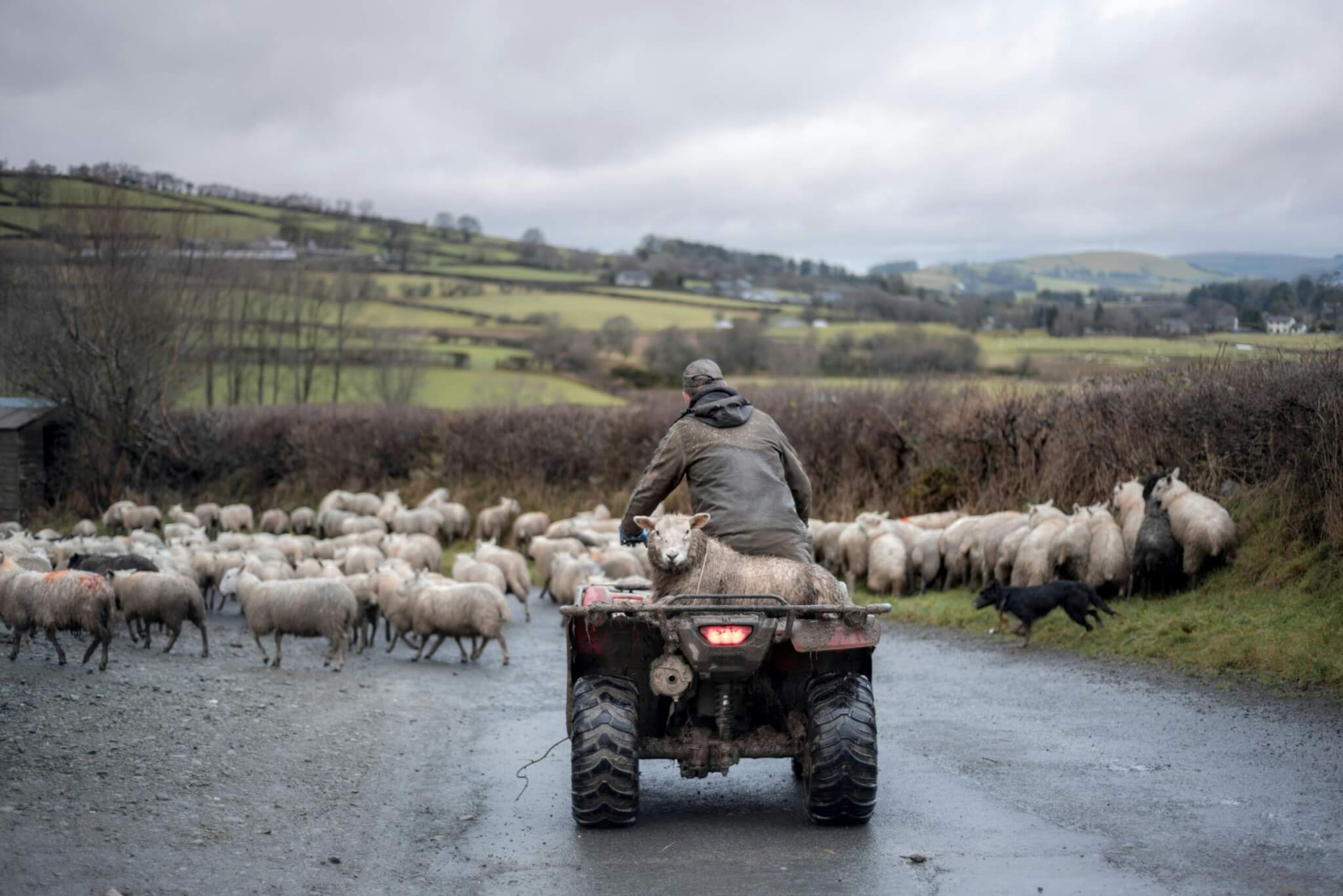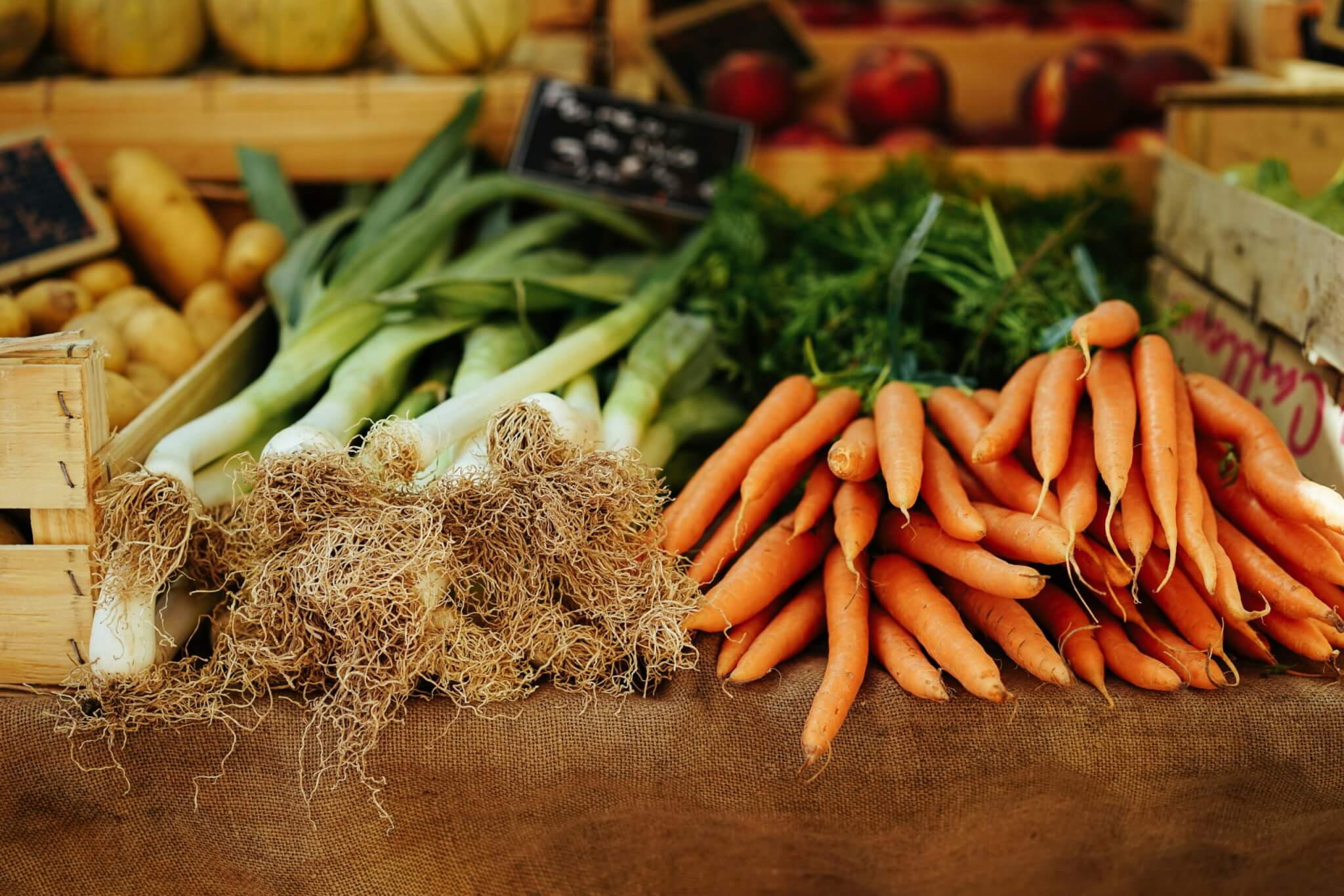Perhaps we were getting cocky. Ed and our Devon polytunnel team’s proficiency in identifying, understanding and managing the pest-predator balance in our tomatoes, cucumbers and peppers was approaching hubris.
Normally we rely on two varieties of small parasitic wasps, whose adults each lay eggs in about 250 aphids; ten days later, having consumed the host from within, an adult wasp emerges alien-like from the aphid’s mummified corpse and heads off to repeat the process.
Brutal I know, but we love them. Success depends on releasing the wasps at the right time; too early and they die of starvation with no food source; too late and, given the fecundity of an aphid plugged into a vein of nutritious plant sap, it can take most of the season for the wasps to catch up. If worried, we sometimes release predacious ladybird and lacewing larvae to help.
Ed, who oversees the polytunnels, reckons cucumbers (which can produce 40 fruit each) are his most profitable crop – but they are also the first to give up when things go wrong. A cold draft, underwatering, overwatering, heavy breathing, unrequited love, an ill-timed sneeze… Like sheep, they are always looking for a new way to die.
This year’s warm spring brought the aphids out early, just as we planted the first cucumbers. We released the wasps as usual, but a sudden drop in temperature in June delayed their emergence. Once it warmed up, the aphids quickly got out of control, sucking the life out of the plants before the wasps, lacewings and ladybirds could do their nasty thing.
There are few things more depressing to a grower than sick cucumbers hanging corpse-like on their strings – so this week we decided to cut our losses and rip out a third of the crop, with the loss of 120,000 cucumbers from our programme. Interestingly, later plantings are less affected; it looks like the good guys will triumph and save the rest of the crop.
With almost every other crop doing well, giving a summery abundance of peaches, plums, cherries, raspberries, strawberries, bunched carrots, basil, aubergines and more, we will have no trouble finding alternatives to keep your boxes full and interesting.
Writing this on the end of the diving board with my feet dangling in our irrigation reservoir, it’s hard to complain anyway, and perhaps even good to be reminded that we are not yet master of nature, even in our tunnels.












0 Comments